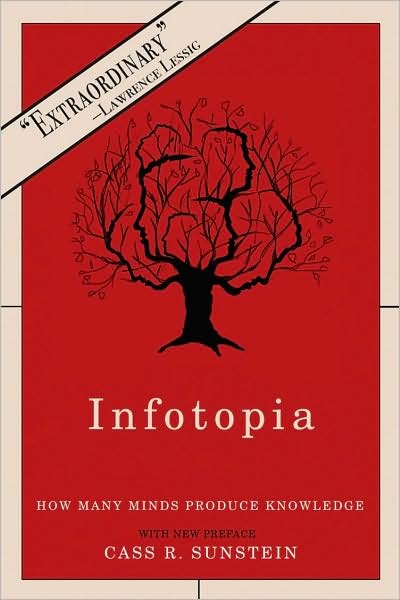
In Infotopia, Cass R. Sunstein argues that because deliberative groups are prone to groupthink, with people copying each other’s biases and worrying about status, they should compensate for those flaws by encouraging individual thinking and contrariness.
That’s well and good, but Sunstein gets there by way of prediction markets, which he holds up as a sort of ideal form of decision making, where people independently make bets that reflect the best of their knowledge. Prediction markets, he believes, are “uncannily” accurate. We should be using them a lot.
Prediction markets are interesting (and fun!), but I’m skeptical about how useful they are. They’re clearly good at gathering hidden information, but many of the areas Sunstein believes prediction markets would be good for, (such as the number of deaths from a new disease, or the likelihood of a “feared event” in the Middle East), are characterized by what Nassim Taleb calls wild randomness, the fourth quadrant. Essentially, they’re unpredictable.
Sunstein doesn’t pretend that prediction markets always work, but he oversells them, treating them a bit like a magic eightball. You can ask it almost anything – never mind why on earth it would know the answer.
His analogy with Hayek’s price theory is also flawed. Market prices reflect something everyone’s an expert on: How much is this worth for me? That’s not the case with wild randomness. Perhaps prediction markets make better predictions than the alternatives, but that’s missing the point: If your plans for the future depend on our ability to predict it, you’re doing it wrong.